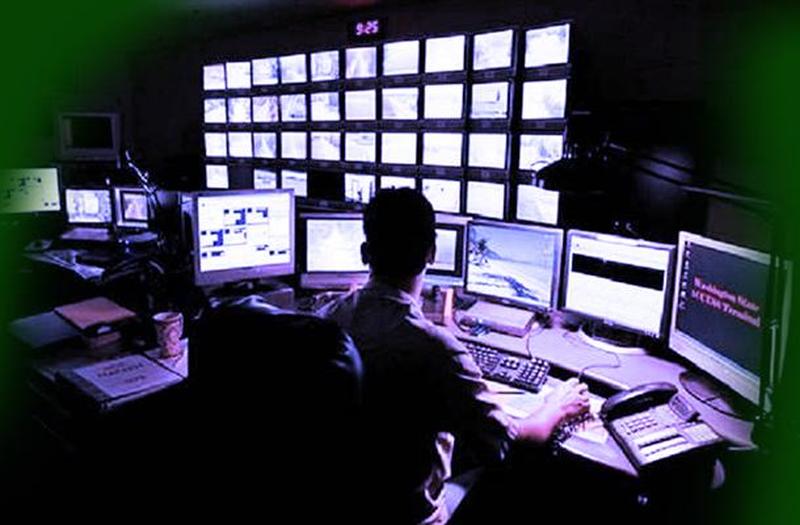Via 21st Century Wire,
With each passing day, supposedly âfree and democraticâ western governments are working overtime to emulate the type of surveillance states we see in countries like China and North Korea. The goal is 24/7 digital tracking of every citizen, and this authoritarian agenda is being accelerated during the current manufactured COVID-19 âcrisis.â Besides going off-grid to a remote rural area, is it still possible to opt-out?
To answer this question, you will first need to audit which lines of tracking are currently in use.
Is it possible for a person to successfully evade this rapidly emerging Orwellian grid of surveillance and social control?
Even when wearing a mask in public, the State and its corporate enablers still have multiple lines of tracking honed on members of the public.
To create effective privacy shields, it is first necessary to deconstruct your current web of digital networks. In addition, there are also a number a new tools at your disposal.

City Lab's Jessica Leigh Hester reportsâ¦
If extricating yourself from the electrical grid is, to some degree, a test of moxie and patience, extracting yourself from the web of urban surveillance technology strains the limits of both. If you live in a dense urban environment, you are being watched, in all kinds of ways. A graphic released by the Future of Privacy Forum highlights just how many sensors, CCTCV cameras, RFID readers, and other nodes of observation might be eying you as you maneuver around a cityâs blocks. As cities race to fit themselves with smart technologies, itâs nearly impossible to know precisely how much data theyâre accumulating, how itâs being stored, or what theyâll do with it.
âBy and large, right now, itâs the Wild West, and the sheriff is also the bad guy, or could be,â says Albert Gidari, the director of privacy at Stanford Law Schoolâs Center for Internet and Society.
The various nodes where sensors and other tech could detect your movements through the city (Image Source: Future of Privacy Forum)
Smart technologies can ease traffic, carve out safer pedestrian passages, and analyze environmental factors such as water quality and air pollution. But, as my colleague Linda Poon points out, their adoption is also stirring up a legal maelstrom. Surveillance fears have been aroused in Oakland, California, Seattle, and Chicago, and the applications of laws protecting citizen privacy are murky. For instance: data thatâs stored on a server indefinitely could potentially infringe on the âright to be forgottenâ thatâs protected in some European countries. But accountability and recourse can be slippery, because civilians canât necessarily sue cities for violating privacy torts, explains Gidari.
What would it look like to leapfrog that murkiness by opting out entirely? Can a contemporary urbanite successfully skirt surveillance? I asked Gidari and Lee Tien, a senior staff attorney at the Electronic Frontier Foundation, to teach me how to disappear.
During the course of our conversations, Tien and Gidari each remind me, again and again, that this was a foolâs errand: You canât truly hide from urban surveillance. In an email before our phone call, Tien points out that weâre not even aware of all the traces of ourselves that are out in the world. He likens our data trailâfrom parking meters, streetlight cameras, automatic license plate readers, and moreâto a kind of binary DNA that weâre constantly sloughing. Trying to scrub these streams of data would be impossible.
Moreover, as the tools of surveillance have become more sophisticated, detecting them has become a harder task. âThere was a time when you could spot cameras,â Tien says. Maybe a bodega would hang up a metal sign warning passersby that they were being recorded by a clunky, conspicuous device. âBut now, theyâre smaller, recessed, and donât look like what you expect them to look like.â
Other cameras are in the sky. As Buzzfeed has reported, some federal surveillance technologies are mounted in sound-dampened planes and helicopters that cruise over cities, using augmented reality to overlay a grid that identifies targets at a granular level. âThere are sensors everywhere,â Gidari says. âThe public has no ability to even see where they are.â
The surest way to dodge surveillance is to not encounter it in the first placeâbut thatâs not a simple ask. While various groups have tried to plot out routes that allow pedestrians to literally sidestep nodes of surveillance, they havenât been especially successful. In 2013, two software developers released a beta version of an app called Surv, which aspired to be a crowdsourced guide to cameras mounted in cities around the world. The app would detect cameras within a 100-meter radius of the userâs phone, but it failed to meet its crowdfunding threshold on Kickstarter.
The most effective solutions are also the least practical ones. To defeat facial recognition software, âyou would have to wear a mask or disguises,â Tien says. âThat doesnât really scale up for people.â Other strategies include makeup that screws with a cameraâs ability to recognize the contours of a human face, or thwarting cameras by blinding them with infrared LED lights fastened to a hat or glasses, as researchers at Japanâs National Institute of Informatics attempted in 2012. Those techniques are hardly subtle, thoughâin trying to trick the technology, you would stick out to the naked eye. And as biometrics continue to advance, cameras will likely be less dupable, too. There are also legal hiccups to consider: Drivers who donât want city officials to know where they parked or when, Gidari says, would have to outwit license plate recognition tools by obscuring their license plate, such as with the noPhoto camera jammer, a new $399 device that fires a flash at red light cameras in an attempt to scramble a readable image. Obscuring license plates is already illegal in many cities and states, and others are chewing on new procedures.
more,,,,,,,,,,,,,
http://www.zerohedge.com/technology/surveillance-state-how-disappear?utm_source=feedburner&utm_medium=feed&utm_campaign=Feed%3A+zerohedge%2Ffeed+%28zero+hedge+-+on+a+long+enough+timeline%2C+the+survival+rate+for+everyone+drops+to+zero%29

Realist - Everybody in America is soft, and hates conflict. The cure for this, both in politics and social life, is the same -- hardihood. Give them raw truth.
